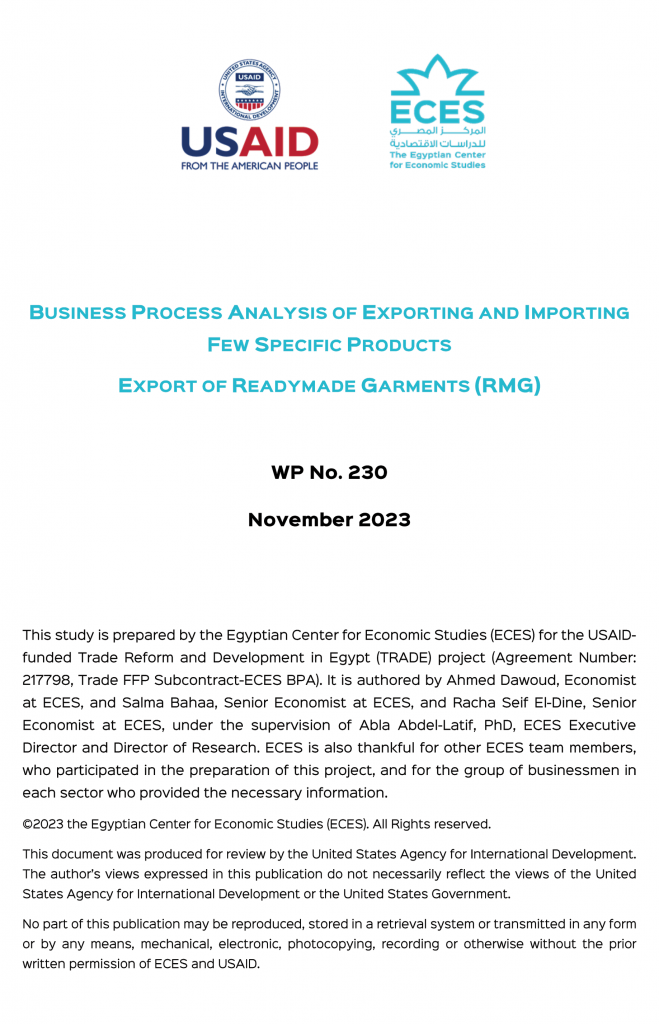Abstract:
Exports play a crucial role in boosting domestic production, foreign currency revenue, employment opportunities, and enhancing the balance of payments. Therefore, exports are a fundamental pillar for advancing the Egyptian economy and positioning it in the right direction. This study aims to comprehensively assess both the formal and informal procedures associated with the export process of a specific set of products. In this analysis, ECES has employed the Business Process Analysis (BPA) Model issued by the UN Centre for Trade Facilitation and Electronic Business (UN/CEFACT). Notably, this marks the first time in Egypt that a globally standardized modeling language has been used, enabling a comparative evaluation of Egypt’s export processes on a global scale. Specifically, the study delves into the export process of readymade garments, focusing on products categorized under HS Code 6203. This analysis covers document requirements, the time required to complete various procedures, and the involved entities. To gather these insights, ECES conducted interviews with different stakeholders for each specific product and reviewed pertinent regulations and studies. International experiences were also studied to benchmark Egypt’s trade process against global standards and extract valuable lessons for enhancing the Egyptian trade process. The study comprises two main parts: Part I examines the current state of the detailed trade process pertaining to the reviewed products, labeled as the “As Is” situation. Part II presents scenarios for improving this process, the “To Be” scenario, along with recommended corrective actions based on stakeholders’ input, international best practices, and ECES’ analysis.

